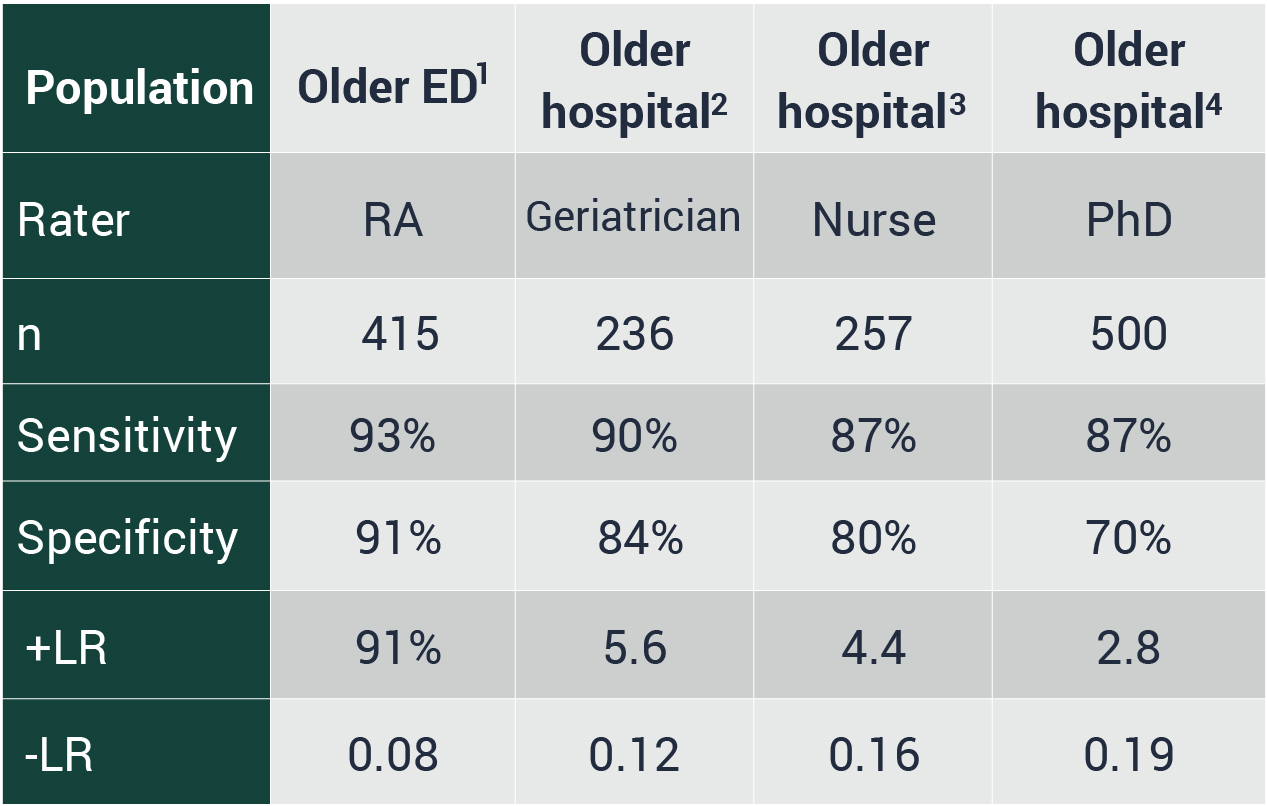4AT (2 minutes)
The 4AT is not based on the CAM
The 4AT test is another brief delirium assessment but is not based upon the CAM algorithm. The 4AT has 4 components:
- Alertness
- AMT4, where the patient is asked their age, date of birth, place, and current year
- Attention, where the patient is asked to name the months of the year backwards
- Acute change in mental status or fluctuating course
A patient is assigned 0 to 4 points for each component depending on the degree of impairment. The points are then added to calculate a total score.
 1O’Sullivan D, et al. Age Ageing. 2018;47(1):61–68.
1O’Sullivan D, et al. Age Ageing. 2018;47(1):61–68.2Bellelli G, et al. Age Ageing. 2014;43(4):496–502.
3De J, et al. Int J Geriatr Psychiatry. 2017;32(12):1322–1329.
4Hendry K, et al. Age Ageing. 2016;45(6):832–837.
4AT, test for delirium & cognitive impairment (Alertness, Age-birthdate-place-current-year, Attention, Acute change)
ED, emergency department
LR, likelihood ratio
RA, research assistant
Advantages and disadvantages of the 4AT
ADVANTAGES
- Brief
- Objective testing incorporated
- Less operator dependent
- Requires less training
- ↑ sensitivity than bCAM and CAM-ICU
DISADVANTAGES
- ↑ sensitivity may come at the expense of specificity
- Limited external validation in ED patients
NOTE
There are limited validation data in older ED patients, but one study has shown the 4AT to have excellent sensitivity and specificity. In older hospitalized patients, it similarly has been shown to have excellent sensitivity, but moderate specificity. Given the limited number validation studies, additional research is needed to fully characterize the 4AT’s diagnostic accuracy in older ED patients.
Resources
Additional details for the 4AT can be seen at www.the4at.com.
References
O’Sullivan D, et al. Age Ageing. 2018;47(1):61–68
Bellelli G, et al. Age Ageing. 2014;43(4):496–502
De J, et al. Int J Geriatr Psychiatry. 2017;32(12):1322–1329
Hendry K, et al. Age Ageing. 2016;45(6):832–837
Abbreviations
4AT, test for delirium & cognitive impairment (Alertness, Age-birthdate-place-current-year, Attention, Acute change)
AMT4, Abbreviated Mental Test 4
CAM, Confusion Assessment Method
ED, emergency department.
